Chogasm! An Interview with Margaret Cho
Is too much of Margaret Cho a bad thing? Not by our measure, as the comic releases a smashing new musical album, "Lucky Gift."

I am apologizing to Margaret Cho.
Not for anything I’ve said over the course of our lively hour-long phone interview one recent Saturday, but for this magazine’s past transgressions.
This issue, you see, marks Cho’s fourth appearance on a Metro Weekly cover in three decades, and I’m sheepishly begging forgiveness for how we handled the previous headlines, bastardizing her last name for the sake of a pun.
“Cho-Zen.”
“On With the Cho.”
“Cho Girl.”
“It’s all good,” she laughs, taking it in stride. One thing about Margaret Cho is that she doesn’t offend easily, if at all.
I then reveal to her that we’re calling this one “Chogasm!”
She laughs again. “Oh, that’s perfect!”
Naturally, this leads to a conversation about the 56-year-old’s sex life.
“I have lots of sex, and I have lots of Chogasms!” she says, jubilantly bursting forth with the kind of personal details other celebrities would slink away from. “And I have lots of varied kinds of relationships with different types of people, whether that’s men or women or trans people or non-binary people. Also my relationships with them are all the same. It’s very ‘friends with benefits.’ And there’s lots of benefits to that. And lots of friends.”
Cho has been high on the public radar since the mid-1990s. In addition to her famously short-lived (and controversial) 1994 sitcom All-American Girl, she had a small role in Greg Araki’s The Doom Generation, and a part in 1997’s action sizzler Face/Off, of which she laughs, “I gained so much weight! I would eat Beef Wellington and pie every day with John Travolta!”
In fact, if you browse Cho’s IMDb credits, your jaw will likely drop over how much acting Cho has done in 30 years, most recently stealing our hearts in writer-star Joel Kim Booster’s entrancing romantic comedy Fire Island. Later this year, she’ll appear as Wasp in season two of Percy Jackson and the Olympians on Disney+, alongside her comedian-in-arms Sandra Bernhard, who plays her sister, Anger.
“We play very mysterious ghostlike creatures,” she says, unable to reveal more. But she was thrilled for the opportunity to work alongside longtime friend Bernhard.
“I am a Bernhard-ologist,” she crows. “I have encyclopedic knowledge of her and her work, her brilliance, her contribution. I’m just so elated that I finally get to appear on screen with her.”
Cho will return to the big screen later this year in I Want Your Sex, Araki’s highly-anticipated new film, which she likens to a “Se7en-style thriller.” “I play a cop like Morgan Freeman,” she says. The film also stars Cooper Hoffman, Mason Gooding, Johnny Knoxville, and Charli XCX.
The comedian is currently on tour with her latest stand-up show, “Live & Livid.” “It’s me being angry but also trying to do it with jokes,” she says of the show. “It’s about laughing through the chaos and the insanity of what’s happening now [in America].”
But today, she is here to talk about her new album, Lucky Gift. It’s her third musical release, the first since 2016’s American Myth. A prolific songwriter and a singer with sumptuous versatility and range, Lucky Gift is an appealing throwback to the ’60s, with a hip-swinging vibe reminiscent of the days of Herb Alpert. It blends genres effortlessly, magically, mixing irresistible melodies with insightful, emotionally resonant lyrics. It’s one of those records that, once you start playing it, it’s virtually impossible to stop.
Fearless and forthcoming, Cho is unafraid to share personal opinions and details. And as we return to the topic of the title of this piece, she gets downright revealing about improvements to her sex life.
“I have had a bit of gender-affirming care,” she says, bringing up a recent hormone regimen that help her revitalize what the years had biologically diminished. “So I [take] estrogen, and I [take] progesterone, and I [take] testosterone, and it’s really helped me. It’s like having a whole new set of parts, which is incredible. So I’m enjoying that. I mean, when you get sort of a new lease on life, it’s like ‘Oh, I got a new set of wheels!’ It’s great.”
As for relationships, Cho, who was married for 16 years to artist Al Ridenour (their divorce was finalized in 2019), is happily unattached.
“I’m determined never to live with anybody again or get married or have anything like a committed relationship,” she says. “So I am really in the space of situationships for as long as they last. And for me, that’s actually appropriate. I’m not looking for a partner anymore — and that’s a relief, but it’s also really great. I’m enjoying myself in this era.”

METRO WEEKLY: I want to start with the album, which is fantastic. The thing that struck me is that it hits a ’60s groove. It has a throwback feel. You especially get that on tracks like “Lucky Gift” and “Waterside.” Did you determine what the tenor of the album was going to be in advance? Or did that present itself to you as you were going along?
MARGARET CHO: I think it came much later. My selections and my writing are always informed by taste, and the album is the ’90s does the ’60s. So it’s from the perspective of bands like Jellyfish, or back when you had a lot of acoustic female artists in the ’90s, like Joan Osborne or Meredith Brooks or Natalie Merchant, where they were recalling ’60s ye-yé girls — French girl pop. That’s what I was going for, that ’90s does the ’60s aesthetic.
MW: And there are little touches of the ’80s in there, synth moments that suddenly pulled me into that decade. So I’ve cracked the code of Lucky Gift, clearly.
CHO: Absolutely. That’s what my intention was.
MW: The album cover is a tip-off because it looks like something that, if you were sifting through a bin at a record store and came across it, and you didn’t know anything about Margaret Cho, you’d think, “Oh, this must be an artist from 1966.”
CHO: That’s what I was hoping for.
MW: “Waterside” is my favorite song on the album. It’s just so melodic and beautifully produced. It’s exactly the kind of song I will put on repeat and drive into the ground.
CHO: I love that song. It’s about life in the 1950s. A gay British teenager is brought to America and becomes a huge movie star, and he’s the boy of the moment, and he has to pretend he’s straight. So he’s buying a house in Hancock Park, and he decides to try to marry his realtor. It’s the song equivalent of a Todd Haynes film. I wanted that Far From Heaven/Carol aesthetic to come through. So it’s just about being closeted and trying to maneuver show business in the 1950s as a man. I think it’s a really poetic, beautiful story.
MW: I also like “Doot-Doot.”
CHO: I love that too! That’s a cover. It’s a band called Freur, and it’s their song from 1983, and it’s heavy. That synth is so beautiful. The band eventually became Underworld, which is famous for the song in Trainspotting at the end of the movie, that electronic masterpiece. But yeah, I love “Doot-Doot.” I don’t really do covers very much, but I really wanted to cover that song.
MW: I want to bring up “Funny Man,” which is about Robin Williams. Let’s talk about what Williams meant to you.
CHO: I met him when I was a child. He was like my first celebrity autograph when I was eight. And then I gradually came to know him as a comedian in San Francisco. He was the silent owner of a comedy club I lived across the street from, and I would do shows there every day, and he would perform there all the time. I would end up having to follow him. What a nightmare as a young comedian to have to follow Robin Williams every night! For years I had to do that. But he was really great. I knew him a little bit, but I had a really great parasocial relationship with him. I loved his comedy, I loved his TV shows, his movies, everything.
His death was such a shock, I think, for anybody who was a fan. I was inspired to do an outreach for people experiencing homelessness, and I called it #BeRobin. We would go out to these encampments, and we’d play music. Roger Rocha, who wrote the song with me, we played this song out on the street for people. We would give out food and supplies, kind of raising money in the spirit of Comic Relief, which is how I also met Robin again as an adult, doing that benefit with Whoopi Goldberg and Billy Crystal, which was all for homeless people.
So the song has deep meaning because it was part of this big collective charity outreach. And we’d play on the street with people like Bob Mould, who I love so much, and Boots Riley, who’s incredible. We had a big band with horns and strings, and we’d steal electricity and play the song. I have such a long history of that song — it was written more than 10 years ago, and so I’m really grateful to finally be able to put it out.
MW: How well did you ultimately end up getting to know Williams?
CHO: Not well, but I knew him for a really long time — over 30 years. So as well as you can know anybody that said that famous. I had a very, very close relationship with Joan Rivers, but I didn’t have as close as one with Robin Williams. But he was always there.

MW: What is it that motivates you to take a break from comedy and make a music album?
CHO: Well, I make music every day. My music is for my mental health. I’m trying to stave off dementia at this time, so I find that writing songs, playing instruments, working on my voice, all these things, is more of a spiritual practice, if that makes sense. I do this as a way of calming down and stress relief and working on my mind. So it’s almost like a meditation.
And a lot of these songs for me were just born out of grief. Like “Stevie” is about my [late] meditation teacher, who left behind a feral cat colony. “Baked Bread” is about my best friend who passed away in 2018 and was part of the #BeRobin project and sang on a lot of the record. She sings on “Funny Man” and she also sings in “Wheels of Gold.”
So I’m helped by writing music, but it’s a very personal thing. It’s outside of comedy in that comedy is just something that I have to do for work, and I always love to do and I do every day, but music is more just a very private venture for myself.
MW: What makes you decide which of those songs to share with the world?
CHO: I go, “Oh, this should be something that people hear,” because I am just a really big fan of my own music. [Laughs.] For the longest time, I was the only fan, but I thought, “Well, maybe somebody else will like this.” And it turns out they do!
MW: Do you perform any of them live in your stand-up shows?
CHO: I’m just starting to. I have a couple of full music shows coming up in Los Angeles, and then I need to figure out exactly what [incorporating songs into stand-up] looks like. It would change the mechanics of my touring because usually if I’m touring, I’m just touring by myself.
MW: You have a gorgeous singing voice — it’s remarkable how versatile it is. Were you always musically gifted?
CHO: I’ve always had music in my life. My mother’s a singer. My father’s a piano player. My mother also is a very good Spanish-style guitarist. She’s really good. And so I grew up singing. I was in a band when I was five. I played piano when I was six or seven. If I really worked on my voice, I could maybe be a great vocalist. But I am all right, I do what I can.
MW: When I got to the final track, “Boyfriend from China,” I was admittedly thrown. It sounds like a different singer. I did a double take because I thought it was a guy singing punk — I had to check to see if I was still in the right album. It’s a sly little wink to the listener.
CHO: That’s what I wanted to do. I wanted it to be like an Iggy Pop song or a 1970s punk rock New York Dolls-style glam rock song. That song was written for Bowen Yang and Joel Kim Booster for when they walk in fashion shows in Shanghai, walking a men’s designer down the runway. It’s about that perfect beauty of Asian men — so untouchable and so exciting. The song celebrates that. And so I wanted to have a very kind of male voice. That song is for them.
MW: Okay, let’s talk about everything else in your life. I looked up how many tours you’ve done, and it’s like 12 stand-up tours in 20 years. That’s amazing. That’s more than many musicians tour over a career. From when you started to now, how have the audiences changed? Has the atmosphere you’re performing in changed, or does it still feel about the same?
CHO: It’s interesting because the enthusiasm is the same. The excitement of touring, it’s the same. When it changed was actually in the early 2000s — it became very politicized. In the ’90s, it was more general and broad politically. But somewhere in the early Bush era, it became very, very politicized. That’s when it really shifted, and it’s the same now, if more intense than ever.
I’m very energized and enthusiastic about politics, especially now in this really awful era that we’re in. Really terrifying when you’re not even letting Maxine Waters into the Department of Education building. That was so offensive to me, so upsetting to watch our Department of Education just be dismantled and not allow really important people into the building. It was just shocking. I think comedy is the only way out of this idiocy — fight idiocy with idiocy. To be ridiculous and mean and crazy as a comic, I think is really appreciated now.

MW: Has your style changed over the years?
CHO: I’m trying to be more thoughtful about what I’m doing. I’m also more exacting. But my style hasn’t changed. I still have the same attitude. I’ve always been a queer Asian American progressive, politically. Those are the things that I always want to represent.
But beyond that, I’m paying attention to the way people are different, paying attention more to intersectionality. Trying to learn from what I didn’t understand before, trying to learn about what’s better to talk about for the trans community, for example. What’s better to represent that community. What’s better to represent the Asian community? What’s better to talk about race in a way that is inclusive as opposed to holding up beliefs that are negative and harm others? I’m trying just to be more attentive to that.
MW: We have a president who is going after immigrants, going after the LGBTQ community, in particular, the T portion of our community. And now he’s saying, “I’m going to proclaim myself the Chairman of the Kennedy Center, and we’re going to show the kind of stuff I want there!” I mean, he’s literally taking aim at controlling the arts. [Editor’s note: This interview occurred just before Trump brute-forced his way into the Kennedy Center chairmanship.] What are your thoughts on his return to office?
CHO: Horrifying. Horrifying. Horrifying. And I don’t understand. I worked on the Kamala campaign. I really believed in her. I really wanted her to be president. It was time. It was time for her. She was a great candidate. She would’ve been a great president. I’m so disappointed. I also don’t entirely understand what happened. I don’t know how this happened, and I’m really shocked. But we have to find a way to fight it every step of the way.
I mean, taking over the Kennedy Center? Now he’s veering into Kim Jong Il territory, where he is going to be deciding what arts are viable. This is getting into the dictatorial North Korea-style thing. It’s very scary. I have a show coming up at the Kennedy Center on March 5, so hopefully, I’ll still get to play it, I don’t know.
MW: Is this part of your tour?
CHO: No, this is part of another event. It’s called Riot! Funny Women Stand Up!, and it’s about female comedians taking over the Kennedy Center. But who knows? It might be canceled. I mean, I have no idea. I’m really like, “Well, we’ll see.”
MW: Kennedy Center chairman is a big responsibility. It’s a lot of work.
CHO: Right. He has to do a lot of work. It’s like work that Trump already doesn’t want to do. He signs all these executive orders without even knowing what it means to fulfill them or if they’re even legal to begin with, but they’re not. So he’s just throwing everything into chaos, which is, I think, part of their plan.
MW: We all know America needs fixing in places but why dismantle it entirely in this manner, gutting it like a dead fish?
CHO: Right. And by Elon Musk. It needs fixing by people who were elected to do that. Where did we somehow ditch the idea of elections? Trump’s not even doing any of this stuff. He’s sort of the instrument through which Elon Musk is working, which is not a person who was elected, not a person who ran, not a politician, not anybody who’s interested in helping. It’s very strange.
MW: How do we face this without just becoming overwhelmed and just giving up?
CHO: Well, we write jokes. I was on a panel of comedians, we were writing jokes for the Kamala campaign, and so we would just try to write jokes for surrogates and try to figure it out through jokes. And what we understood is that Trump and Elon hate to be made fun of. That’s their one weakness. They hate it when there are jokes about them. They want to be funny so badly, and they’re desperately not. They just can’t be. They just never are. And so they’re so mad when people make jokes at their expense. And that’s the one area where they experience poverty — when they’re being made fun of because they can’t pay for these jokes at their expense. They’re so poor at it.
And that’s why we just have to write jokes. That’s what my main focus is every day — write as many jokes as I can. The simplicity helps. My favorite right now is, “You can’t spell felon without Elon.” Those little soundbites, they’ll stick in people’s minds, and they’ll remember them and then use them for moral support. And as many jokes as you can write, the better. For us, we’re using jokes as a weapon. We’re forging our weapons every day, trying to get them out there. It’s really important.
MW: Are comedians lifelines for the rest of us during periods of civic turmoil? Is comedy a way to get us through it?
CHO: For me, it is. I’m really attached to The Daily Show. I love Jon Stewart, and I love all of the new correspondents, and the old correspondents like Ronnie Chang. I love their take. Every day, their take really helps me to at least feel like it’s going to be all right. I love all of the late-night shows, whether that’s Jimmy Kimmel or Seth Meyers or Jimmy Fallon or Stephen Colbert. That really helps. John Oliver really helps. I’m really attuned to comedians because they’re the one place where I can get the news but also get some sense of relief from the worry. And I think that’s what a lot of people are doing, they’re looking to comedians to try to make sense of it.
MW: Do you feel part of that movement, relief from the worry?
CHO: Yes. Yes. And it’s hope. Because a laugh is an abrupt intake of breath where you didn’t expect that you were going to breathe, and it ensures life for the next moment. It’s hope. So I’m trying to be like a hope dealer. A hope peddler.
MW: Do you still identify as bisexual?
CHO: Yes, but I think it’s also a little bit wrong because I think that bisexual makes it seem like there are only two genders. I think gender is really infinite. So bisexual doesn’t quite cut it as a term, but it’s also the one that probably fits me the most.
MW: So, in your estimation, what is President Trump getting wrong when he signs an executive order proclaiming that there are only two genders, male and female?
CHO: Well, you can’t legislate that! Just the fact that you sign a piece of paper does not mean that you can nullify the existence of millions who have existed far longer before you were born and beyond since the beginning of time. Gender has always been a spectrum, and no amount of executive orders is going to do anything about that. He has the concept of a plan of eradicating the idea of variance in gender, when all of gender is variant. There is no one way to be female, there’s no one way to be male, and there’s no defining way. It’s like, yes, there’s biology, but biology doesn’t determine gender. So I don’t even think he actually understands what he’s trying to do. It’s dumb.

MW: What would you say to the members of the LGBTQ community, especially the gay and lesbian ones, who would like to see the T dropped entirely? And there are quite a few of them out there these days.
CHO: We are stronger united. We are stronger together. We are indebted to the transgender community for being there at Stonewall. We are indebted to the contributions of Marsha T. Johnson. We’re indebted to so many of the T, they really have given us our freedom, so we have a responsibility to care for our own.
Also, remember that if they try to take one part of our community, what’s to stop them from taking us as well? So when we are divided, we are compromised. And the fact that they think that they can sort of pick apart who we are as a community is just evidence that they don’t look at us as human at all.
I think that it would be better to look within to find the courage to stand up in a space where we’re all together and to remember that, yeah, if they come for them, they’re coming for us next. So we should fight for us all.
MW: Some prominent Democrats have said that Kamala lost in part because of this social wedge issue and that we should back away from it to succeed again down the line.
CHO: I think there are a number of reasons that Kamala lost, but I think this was not something that we fully realized would become such a hammering point for the other side. The major thing that I remember is that political ad that was, “Kamala cares about they/them. Trump cares about you.” And again, it’s like jokes. In those soundbites, they really infiltrate all of the noise and they get in. People only remember that. And so it’s our duty to find out how can we counter that weapon? It’s like an intellectual existential weapon, these soundbites, these jokes, in a sense. So I’m still trying to figure out that one. How do we combat that?
MW: I believe that Kamala lost because America is at its core misogynistic and racist.
CHO: Yes. Yeah, I agree. I agree.
MW: We aren’t going to vote a woman in yet, let alone a Black woman.
CHO: A black woman. Really, I think that’s what’s so disappointing and so hurtful. But yeah, the they/them thing — the generation before accepted the royal “we.” The Queen of England also changed her pronouns. She was a “we” and a she, but a “they” mostly. We all accepted the “royal we” — the Queen, one person, was allowed that. So couldn’t we have the grace to also extend it to a very small number of people who may not be in the royal family but want to change their pronouns, too?
MW: So, my last question. We’ve interviewed you so many times. Is there something you have never revealed to anyone in an interview that you would like to reveal to us now? Anecdote? Anything? Something shocking just because? Viral Margaret moments?
CHO: [Laughs.] Viral moments? I don’t know. You know what? I have a good time all the time. I have a really good time with my life. I think I’ve figured out the secret of life is not to take anything seriously, and I’ve really enjoyed that. I felt like life was so heavy before, but now I just have fun. So I think that’s my secret: Just have a good time.
Margaret Cho’s Lucky Gift is available wherever you stream music, including Spotify and Apple Music, and for sale on vinyl at www.margaretcho.com/music.
For updates on the “Live and Livid” comedy tour and to see when it’s at a city near you, visit www.margaretcho.com/tour.
RIOT! Funny Women Stand Up! Plays the Kennedy Center Concert Hall on Wednesday, March 5 at 8 p.m. Visit www.kennedy-center.org.
Follow Margaret Cho on X at @margaretcho.
Support Metro Weekly’s Journalism
These are challenging times for news organizations. And yet it’s crucial we stay active and provide vital resources and information to both our local readers and the world. So won’t you please take a moment and consider supporting Metro Weekly with a membership? For as little as $5 a month, you can help ensure Metro Weekly magazine and MetroWeekly.com remain free, viable resources as we provide the best, most diverse, culturally-resonant LGBTQ coverage in both the D.C. region and around the world. Memberships come with exclusive perks and discounts, your own personal digital delivery of each week’s magazine (and an archive), access to our Member's Lounge when it launches this fall, and exclusive members-only items like Metro Weekly Membership Mugs and Tote Bags! Check out all our membership levels here and please join us today!








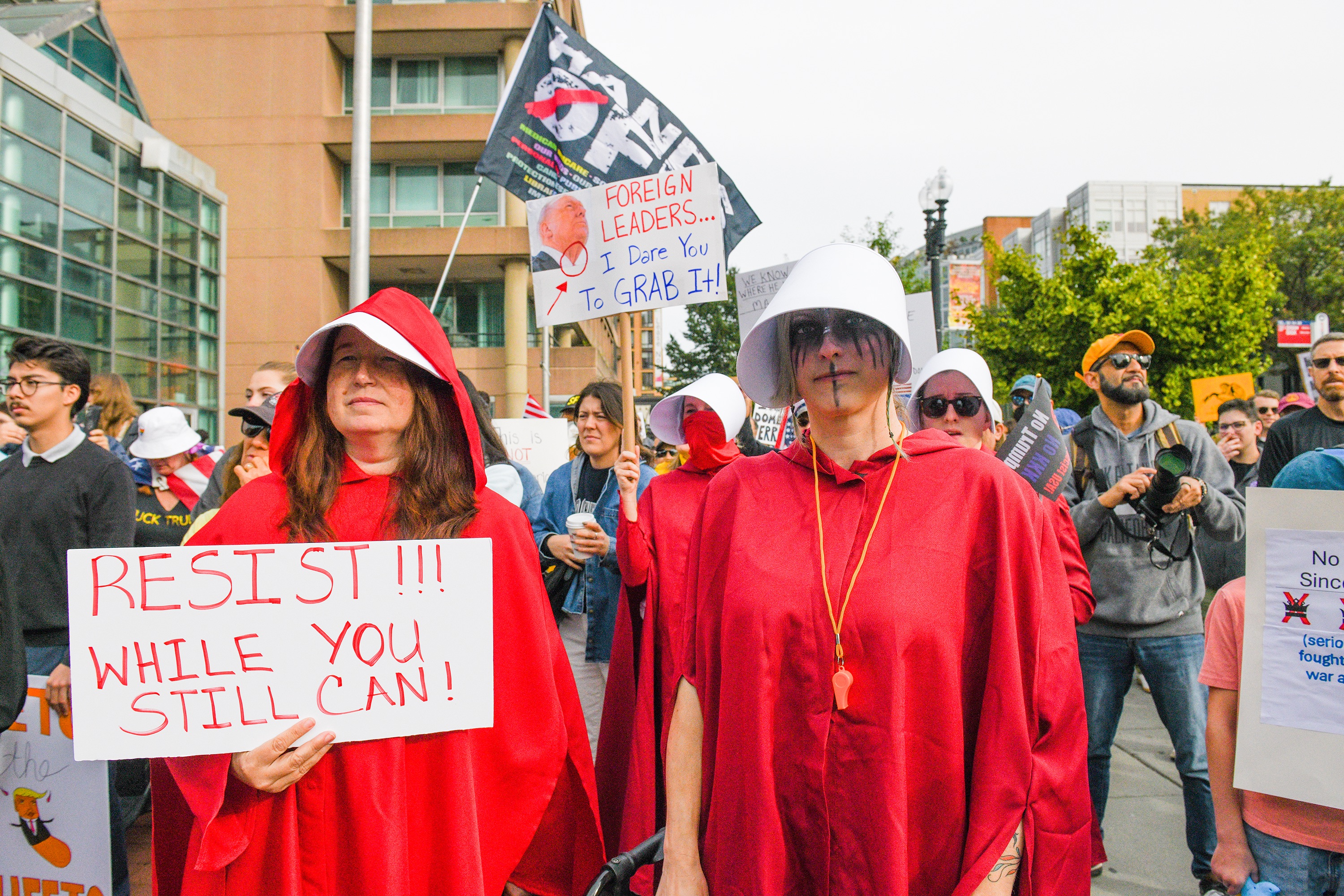
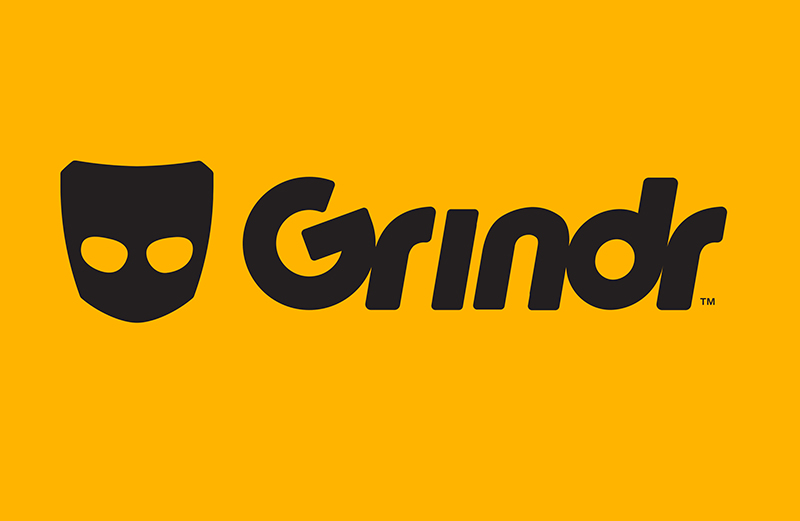
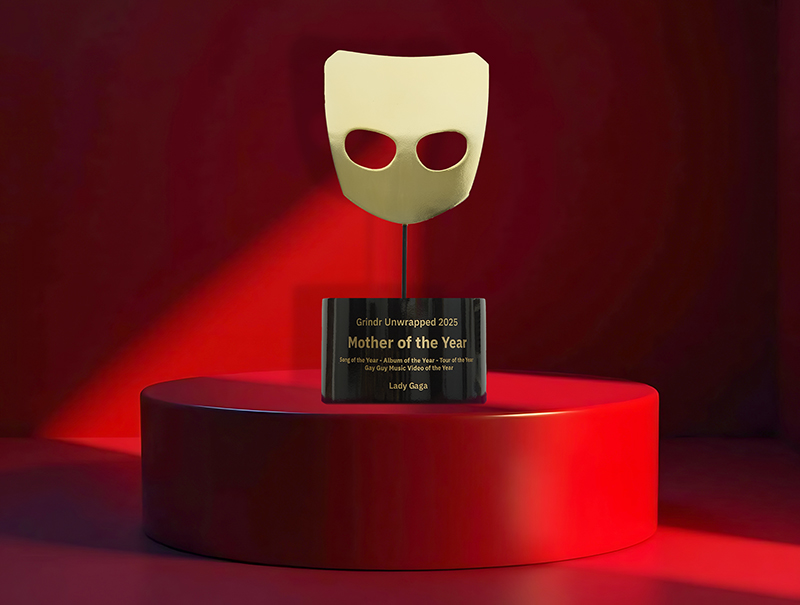














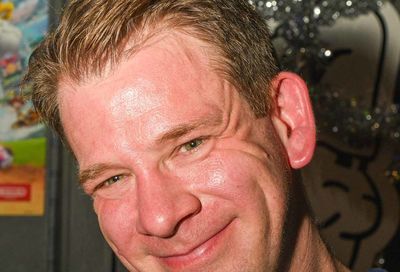
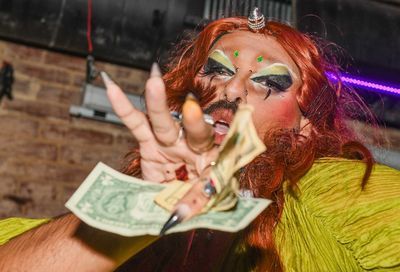

You must be logged in to post a comment.